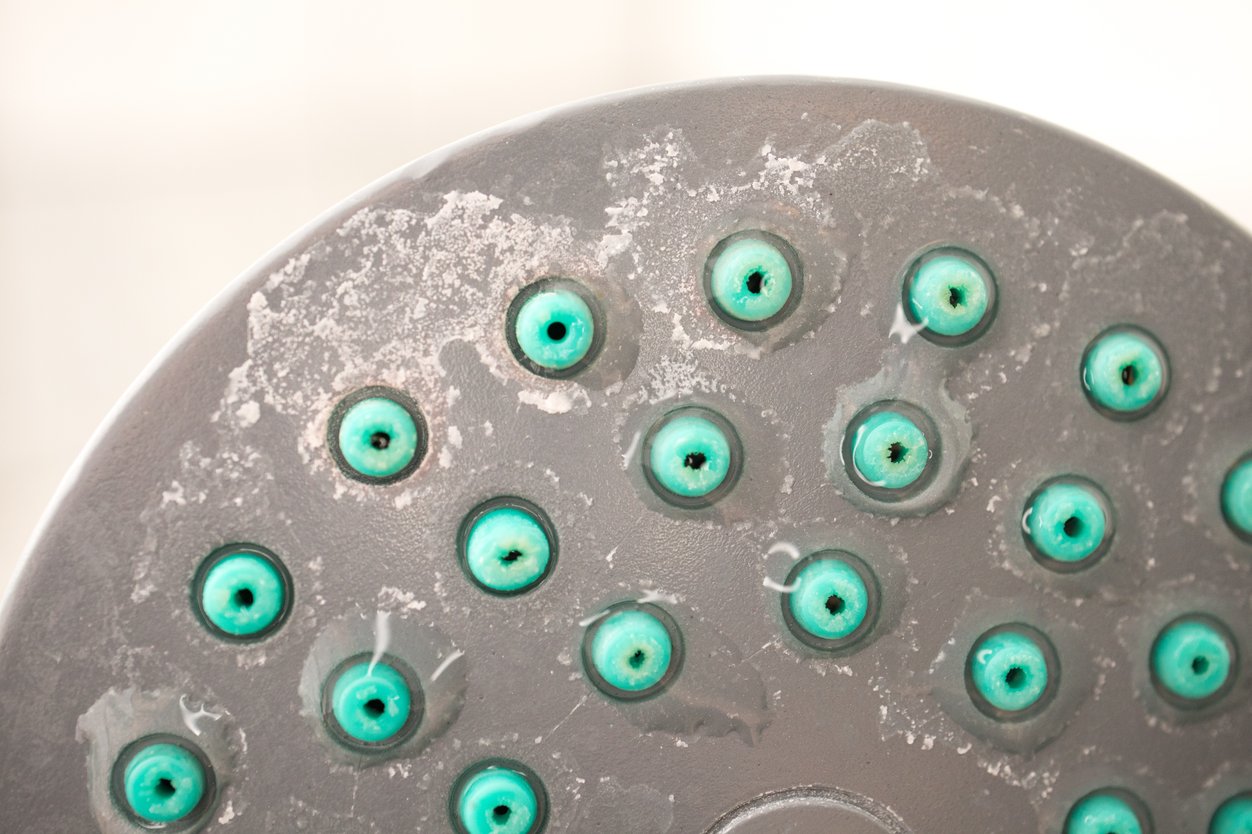bathrooms
Meet the viruses living on your toothbrush & in your shower

Ivan Radic
Next time you brush your teeth or take a shower, say hello: There are hundreds of viruses teeming over those surfaces, most of which scientists have never seen before. That's according to a study published today in Frontiers in Microbiomes. Researchers set out to characterize bacteria in the home by analyzing 34 toothbrushes and 92 showerheads — because where there's water, there are microbes.
"The number of viruses that we found is absolutely wild," Erica Hartmann, the researcher who led the study, said in a press release. There were more than 600 different viruses in the samples, with basically no overlap between the toothbrush and showerhead.
The researchers emphasized that the viruses they found are not our enemies. They are phages, which target bacteria. Still, the results emphasize what they call "the paucity of information available on bacteriophage in indoor environments."
(Tangentially related — did you guys see this study from February that found closing the toilet lid does not mitigate your risk of contaminating bathroom surfaces? It haunts me.)
water
Lead pipes need to be replaced within 10 years, per new EPA rule
Drinking water systems across the U.S. need to identify and replace lead pipes within 10 years, according to a new EPA rule that the Biden administration finalized yesterday. The rule also requires more rigorous testing of drinking water and a lower threshold of exposure to require communities to take action. The action comes a decade after the drinking water crisis in Flint, Michigan.
The EPA estimates the work will cost an estimated $20-30 billion to replace "legacy" (read: old) pipes supporting up to 9 million homes. In addition to previous funding, the agency is making $2.6 billion available to support the work, half of which must be provided to disadvantaged communities. (However, note that the rule does not require utility companies to pay for pipes that are on private property). Another $35 million will be made available in competitive grant funding.
Read more about the rule, which STAT's Nalis Merelli wrote about last year when it was proposed.
podcasts
Why Scientific American endorsed a presidential candidate
The editors at Scientific American have inspired controversy twice in recent years for endorsing presidential candidates: President Biden in 2020 and now Vice President Kamala Harris in this year's election. The publication's editor-in-chief Laura Helmuth and opinion editor Megha Satyanarayana explain why they went against the magazine's 179-year history in this week's episode of The First Opinion podcast.
"We have a lot of knowledge, and we have, I think, the opportunity and the responsibility to explain how science is at stake in the election," said Helmuth. "And not just science, of course — health care, the environment, education, technology." Listen to the episode.


No comments